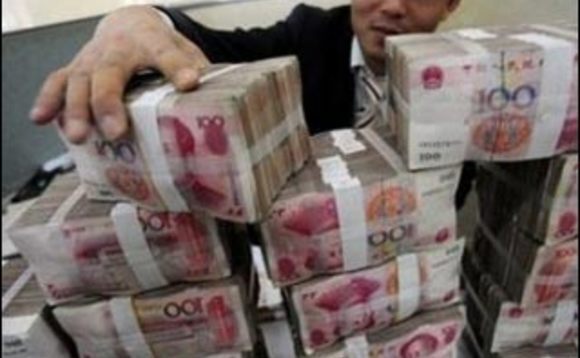
China targets illicit PE fundraising

Horror stories of individual investors being talked into committing capital to suspect private equity funds have prompted regulatory intervention in China. But progress is slow and the road is long.
It was inevitable that China's private equity fundraising frenzy would have some unpleasant fallout. Drawn in by the stellar returns promised by pre-IPO investments, individual investors have flocked to the asset class in the past couple of years, playing an increasingly significant role in new renminbi-denominated vehicles. But the market has moved faster than the legal apparatus that is supposed to support it, opening the door to a wide range of informal and often fraudulent fundraising practices.
The National Development and Reform Commission (NDRC) has in recent weeks issued the first nationwide rules for private equity in order to stop immature investors getting their fingers burnt. However, the level of interest combined with the scant regulation makes for a significant challenge.
"From a demand-and-supply point of view, there is so much money in the system looking for a home, and now so many GPs trying to raise money domestically. Fundraising channels are just leveraging the supply-demand imbalance, and providing access to private equity when regulations still haven't caught up," says Vincent Huang, a partner at global fund-of-funds manager Pantheon.
China fundraising reached $35.8 billion in 2011, its share of the Asian total rising to 69% compared to less than 50% the previous year. Renminbi funds are the key driving factor, attracting $2 for every $1 that goes into US dollar-denominated vehicles. The situation has completely reversed from just five years ago, while the fund pool has grown more than fivefold.
With such strong inflows of local money and no single regulator tasked with monitoring the fundraising process, it comes as no surprise that illegal activity has flourished.
Illegal activity
On a basic level, some fund managers are accepting sums far larger than the registered capital level set by the authorities and not seeking permission to do this. The illegality stretches to the means used to attract these commitments. Investors are promised high fixed-rate returns - according to anecdotal evidence, guaranteed returns can be as high as 6x and investment tenure as short as 12 months - and the initial approach is completely unsolicited.
A common practice sees intermediaries cold-call individuals with bank balances above a certain level, deliver incomplete or poorly explained pitches, and receive a fee based on the number participants.
"In the past couple of years, as long as you paid the fees you can raise money from high net worth individuals (HNWIs) fairly easily," adds Huang. "The intermediaries can charge 1-2% up front and then half of the annual management fee and carried interest, so they are very incentivized to push the products regardless of the quality. The GPs, including some very established ones, have to live with it due to the lack of real domestic LPs."
Under the existing rules, no more than 50 investors are permitted in a standard vehicle and up to 200 in a fund raised through a trust company. But some industry participants appear to be disguising the number of investors.
According to 21st Century Business Herald, Tianjin-based Huolimu Equity Investment Fund launched a RMB5 billion ($792 million) fund and announced it would guarantee annual returns of over 100%, attracting a pool of RMB1.6 billion from over 5,000 individuals. One investor said she and her relatives had committed RMB1.4 million over the three months to January 2011, with investment tenure of one year and 9% guaranteed dividend per month. The dividends ended in March and the money couldn't be traced. One of the partners in the company was arrested a month later.
Another Tianjin-based entity, TianKai Xinsheng Equity Investment Fund, was also charged of illegal fundraising, having reportedly used direct marketing channels to raise RMB1 billion from around 9,000 investors. According to NDRC's statistics, there were 1,059 cases of private equity firms violating fundraising regulations last year.
The state planning body issued rules last year to improve and clarify the rules concerning the development and operation of equity investment enterprises (EIEs) in four pilot regions. These efforts have since been extended nationwide. According to a circular, all EIEs with a fund size below RMB500 million should complete a provincial-level record filing while national-level registration is required for funds targeting RMB500 million or above.
Frank Han, executive director of Bohai Industrial Investment Fund Management is generally positive about the NDRC's move, noting that it brings more clarity to an uncertain area. But it is more gesture than enforcement.
"The NDRC only requires private equity firms to be filed instead of being approved, and there is quite a difference in between," says Han, who expects more regulations to come in due course.
In much the same way, Xiaohu Ma, a partner in Morrison & Foerster's Hong Kong office, sees the new regulations as the NDRC laying down a marker. It is not unusual in China for a nascent industry to be subject to reasonably loose directives, with more detailed implementation guidelines released once the regulators have a better idea of the way in which things are moving. The NDRC simply wants "confirm its jurisdiction over matters affecting the China private equity industry."
Immature LP base
However, the problem with the quality of domestic LP base is increasingly eye-catching. The paucity of regulation is partly to blame, but it has more to do with the wider private equity environment. With the asset class still largely off limits to domestic institutional investors, individuals come in and fill the gap - but there is no formal framework to facilitate this.
In the circular, NDRC mentions that EIEs may only be raised through private placement from "accredited investors," defined as those who are of sufficient ability to comprehend and bear the risks of their investment. No further explanation was offered, but it leaves the door open to further curbs on fundraising channels. It might see the creation of a class of LP that acts on behalf of groups of smaller investors and must meet minimum registered capital threshold among other requirements. The concept is innovative but difficult to execute.
"If the capital threshold is too high, it could be unfavorable to the PE industry as fundraising would become more difficult," says Yi Zhang, managing partner of a leading Chinese law firm King & Wood's Shanghai office. "If it is too low, investor quality could become an issue."
Separately, sources tell AVCJ that domestic fund-of-funds could be called upon to operate as the buffer in between individual investors and the market, although these entities are also still at a very early stage of development.
"The PE industry is very young and it's hard to fine firms with a long history and established track records. Both GPs and LPs have a long way to go to increase their credibility," Bohai's Han explains. He expects regulation to help build a more mature LP base in the long term, but it will remain scattered in short-term.
Participation by large institutional investors - such as banks, insurance firms and other asset managers - is the key to achieving this maturity. Imposing tougher regulations before these players enter the market would have a detrimental impact on fundraising but this might already be happening.
According to AVCJ Research's preliminary fourth quarter data, the total value of growth capital deals in Asia was down 50% on the previous three months, at $2.2 billion, while buyout deal value saw only a minor decline and venture activity nearly doubled. This points to a retreat from the pre-IPO space in China and it may already be having a knock-on effect on commitments to GPs.
"It is already cooling down since the first wave of HNWIs who have committed to this asset class haven't seen any distribution and therefore are unlikely to re-up," says Pantheon's Huang. Pre-IPO deals have become far less attractive, and now this regulation will make people question the legitimacy of funds raised from individuals, which is the wrong investor base for PE anyway."
Latest News
Asian GPs slow implementation of ESG policies - survey
Asia-based private equity firms are assigning more dedicated resources to environment, social, and governance (ESG) programmes, but policy changes have slowed in the past 12 months, in part due to concerns raised internally and by LPs, according to a...
Singapore fintech start-up LXA gets $10m seed round
New Enterprise Associates (NEA) has led a USD 10m seed round for Singapore’s LXA, a financial technology start-up launched by a former Asia senior executive at The Blackstone Group.
India's InCred announces $60m round, claims unicorn status
Indian non-bank lender InCred Financial Services said it has received INR 5bn (USD 60m) at a valuation of at least USD 1bn from unnamed investors including “a global private equity fund.”
Insight leads $50m round for Australia's Roller
Insight Partners has led a USD 50m round for Australia’s Roller, a venue management software provider specializing in family fun parks.








